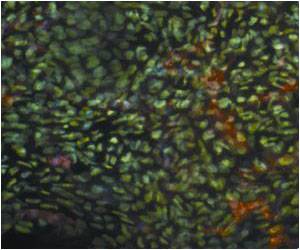Monitoring the effect of immunosuppressants in kidney transplant patients could reduce the chances of excessive immunosuppression and the consequences thereof.

Newer drugs that may be safer and more specifically target the immune system are being investigated to overcome the shortcomings of the current drugs. One such drug is tofacitinib. This drug acts on Janus kinase, which is closely involved with immunity. The drug has been found to be useful in preventing kidney rejection following transplantation. However, its use on various studies was also associated with a high incidence of cancers and infections, indicating that it may have caused too much of immunosuppression.
These adverse effects could possibly be reduced by monitoring the effects of the drug and ensuring that the patient received just the right amount. Researchers thus investigated the use of phosphospecific flow cytometry (PFC), a blood test that measures the cellular response to drugs like tofacitinib.
The study was conducted in few kidney transplantation patients. Among these, 5 patients received tofacitinib for at least 60 days followed by other medications. A second group comprising of 4 patients received cyclosporine along with other medications. Both groups received basiliximab. A third group comprising of 6 patients received tacrolimus- based regimen without basiliximab and served as control group.
Blood samples were tested at specific intervals and analyzed for immune cells and specific parameters related to the effect of the drugs.
The authors suggest that
• The cellular response of the drug in each patient may be determined using PFC, thereby reducing the chances of overtreatment.
The researchers feel that PFC is a useful measure of the effects of the immunosuppressant drugs like tofacitinib and basiliximab since the procedure requires a small amount of blood and the results are available within hours. The procedure is also sensitive, standardized and has low variability.
Reference:
Pharmacodynamic Analysis of Tofacitinib and Basiliximab in Kidney Allograft Recipients; Vafadari Ramin et al; Transplantation: 15 September 2012 - Volume 94 - Issue 5 - p 465–472
Source-Medindia














